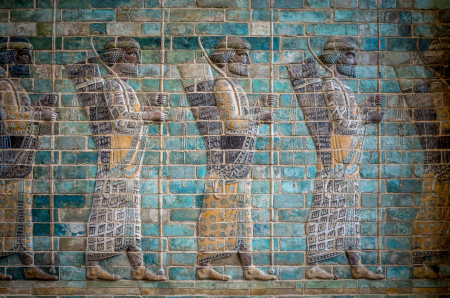The Four Five Spiritual Laws Part 4
© 09.22.25 By David Eric Williams
 Jesus said, “This is how you should pray: “Father, may your name be kept holy. May your Kingdom come soon. Give us each day the food we need, and forgive us our sins, as we forgive those who sin against us. And don’t let us yield to temptation” (Luke 11:2-4, New Living Translation).
Jesus said, “This is how you should pray: “Father, may your name be kept holy. May your Kingdom come soon. Give us each day the food we need, and forgive us our sins, as we forgive those who sin against us. And don’t let us yield to temptation” (Luke 11:2-4, New Living Translation).
The importance of point one in the “five spiritual laws” invites another article on the subject of God’s sovereignty. In this letter we will turn our attention again to the purpose of calamity.
God brings disaster as judgment and as a means of altering the course of history – typically at the same time. For instance, through the prophet Jeremiah, God warned the people of Edom, Moab, Ammon, Tyre, Sidon and Judah telling them, Now I will give your countries to King Nebuchadnezzar of Babylon, who is my servant. I have put everything, even the wild animals, under his control. All the nations will serve him, his son, and his grandson until his time is up. Then many nations and great kings will conquer and rule over Babylon. So you must submit to Babylon’s king and serve him; put your neck under Babylon’s yoke! I will punish any nation that refuses to be his slave, says the LORD. I will send war, famine, and disease upon that nation until Babylon has conquered it (Jeremiah 27:6-8).
Later, the kings of Babylon refused to submit to Yahweh. Judgment fell and the trajectory of history changed again when God brought catastrophe upon Babylon with the armies of the Medes and Persians (cf. Jeremiah chapter 50).
Some will say adversity and judgment from the hand of God are limited to the old covenant era. However, Jesus himself pronounced judgment more than once . For example, near the end of his earthly ministry he announced a future judgment of Jerusalem (A.D. 70) when he told his disciples, do you see all these buildings? I tell you the truth, they will be completely demolished. Not one stone will be left on top of another! (Matthew 24:2b). This should not surprise us because Jesus Christ is the same yesterday, today, and forever (Hebrews 13:8). There is no God of the Old Testament and God of the New Testament – Yahweh is Lord eternally.
It is not just cities and nations that experience disaster. Individuals are also under God’s sovereign control and the tragedy they experience is likewise from the hand of God. Indeed, even a Christian can - and will - experience terrible events. Just think about all the things Paul went through. None of that happened apart from God’s sovereign superintendence of history. It was a reaction to the preaching of the gospel because it was part of God’s plan for the proclamation of the gospel (1 Corinthians 4:9, 2 Corinthians 1:8-10, Philippians 1:29-30).
Sometimes hardship and death are visited upon people as direct judgment for wrongdoing. When Paul gave the church in Corinth instructions concerning the Lord’s supper he told them, anyone who eats this bread or drinks this cup of the Lord unworthily is guilty of sinning against the body and blood of the Lord. That is why you should examine yourself before eating the bread and drinking the cup. For if you eat the bread or drink the cup without honoring the body of Christ, you are eating and drinking God’s judgment upon yourself. That is why many of you are weak and sick and some have even died. But if we would examine ourselves, we would not be judged by God in this way. Yet when we are judged by the Lord, we are being disciplined so that we will not be condemned along with the world (1 Corinthians 11:26-32, underline added).
Thus, everything in life is under God’s control. Sometimes we understand his purposes; often we do not. When nations fall or when individuals undergo suffering and death we must humble ourselves under the mighty hand of God and acknowledge his sovereignty. We can pray for wisdom to discern God’s intent - we certainly should pray for those who are affected and extend practical help if we can - but when we are unable to recognize his purpose, our best response is to adopt the attitude of the psalmist; Yahweh, my heart is not proud; my eyes are not haughty. I don’t concern myself with matters too great or too awesome for me to grasp. Instead, I have calmed and quieted myself, like a weaned child who no longer cries for its mother’s milk. Yes, like a weaned child is my soul within me. O Israel, put your hope in Yahweh now and always (Psalms 131:1-3).
Entire Site Copyright © 2025 By David Eric Williams










